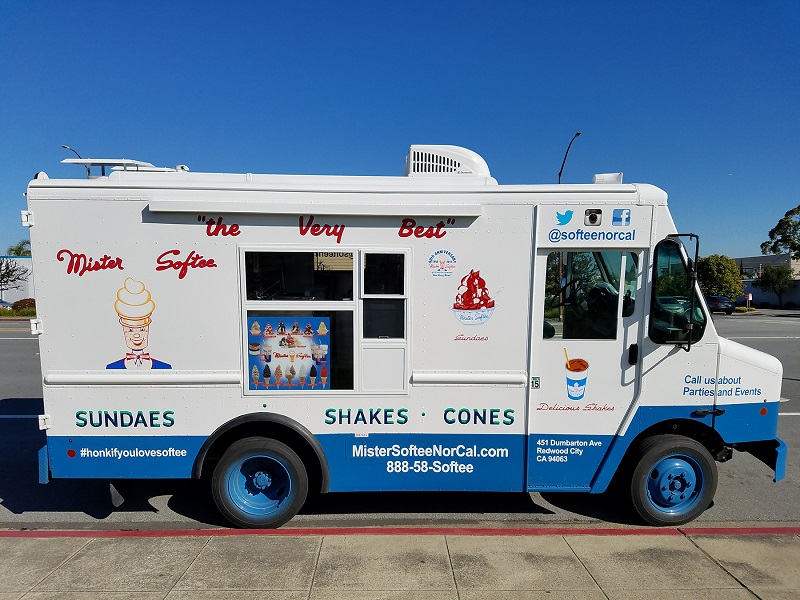MicroClimate caught up with Kyle Vogel, current owner of Woodside Deli, in an attempt to shed more light on the closing of this beloved institution. The sudden shuttering was a shock to locals who had been coming to the deli for imported meats, cheeses, hallmark sandwiches and various homemade foods for 61 years. As in most situations like this, perception does not always tell the whole story.
Aficionados of the deli on Woodside Road know that it had been owned and operated by Dan Gallinetti, but when he retired in 2016, he sold it to Vogel. After extensive remodeling, the deli had reopened in 2018 to the delight of fans far and wide.
When Vogel announced in September that Woodside Deli was closing, he explained that a 52 percent raise in his rent was a factor. “It was the straw that broke the camel’s back,” he says, “but not the main reason for shutting down.” Indeed, he accepts responsibility for not negotiating a new lease when buying the business, but the real culprit was one common to Bay Area employers.
“It’s impossible to staff a business when your employees can’t afford to live in the area,” he says. “I had fewer and fewer options for where to find people.”
Vogel quickly discovered that employee cost was his biggest challenge. To keep help working at the deli, he had to pay more, but his customers complained—loudly—when he raised the price of sandwiches 50 cents.
“When you have 52 kinds of meats, 10 kinds of turkeys and no two sandwiches are alike, you need a lot of hands to get that work done,” Vogel explains. “For me to keep the doors open with the raise in rent and staff salaries would have ultimately required sandwiches that cost $13.” Vogel had to decide whether he could keep the business afloat under a new five-year lease. His chose not to, a reflection of a sad but unfortunate reality in this high-cost area.
Making it in the food service business is indeed a challenge, especially in the high cost Bay Area, something Felix Tarnarider of Redwood City knew before he launched MisterSoftee NorCal almost three years ago. He’d had a career in tech before he decided to venture into the ice cream business by bringing MisterSoftee to the Peninsula. MisterSoftee was founded in 1956 in Philadelphia and is all over the Northeast. Tarnarider grew up in New York and well remembers as a kid hearing the ice cream truck coming and begging his parents for money – quick – so he could get a MisterSoftee before the truck moved on.
When his fleet of five trucks (soon to be six) goes to corporate and public events, fundraisers and birthday parties, he sees customers lined up who have tears in their eyes because of nostalgia. (He’s also been surprised how many more have never heard of the brand.) When Tarnarider was a kid, the whole neighborhood would swarm the MisterSoftee truck, and he sees his business as a service that can help bring neighbors together. “I hope it becomes a neighborhood staple,” he says.
On top of the challenges that others in the food service industry have finding good, dependable employees and paying soaring rents, the ice cream business is seasonal. By late November, the weather gets cooler and the days are shorter, so Tarnarider’s business goes into kind of a hibernation, which he uses for things like catching up on truck repairs, although MisterSoftee trucks are still on the road for things like Thanksgiving and tree-lighting events. Meanwhile, Tarnarider is marketing to sponsors of public and private events about his capability to cater MisterSoftee for indoor parties and celebrations year-round. “Statistics show that people eat more ice cream in the winter than in the summertime,” he says. Instead of licking a dripping cone outdoors, people can sit indoors and eat.
MisterSoftee is by no means all plain vanilla. There’s chocolate dip, cherry and Oreo dust cones, to name a few, plus sundaes and shakes, and a recent addition, sprinklings of “crunchies.” The company also has an app so ice cream fans can track the neighborhood truck in real time. No need for frantic appeals to mom and dad. Check it out at mistersofteenorcal.com.
This article was originally published in the November print edition of Climate Magazine.






